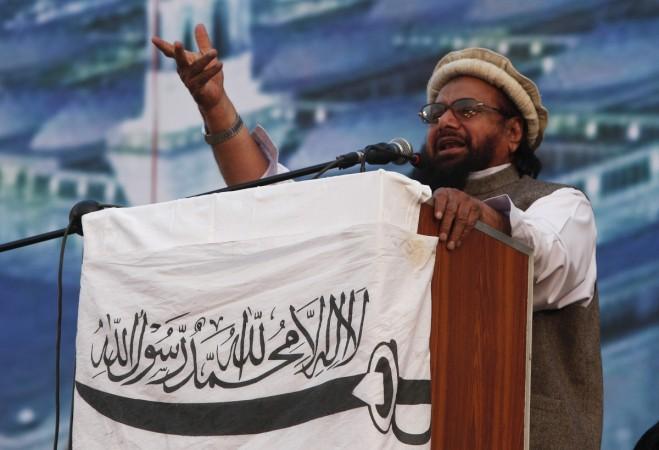
Pakistan on Monday dealt a decisive blow to Lashkar-e-Taiba boss Hafiz Saeed after it decided to ban the charities that he was receiving. Pakistan further indicated that they would take over the institutions that he runs to bring in the charity.
Saeed used outfits such as Jamaat-ud-Dawa and Falah-e-Insaniyat to receive charity. This money was in turn to nurture cadres of Lashkar-e-Taiba which carried out attacks in India. It had been found that the same funds were used to sponsor the Mumbai 26/11 attack.
While Saeed would rely on funds from Saudi Arabia, there were three key persons who managed the entire show. The three men -- Muhammad Ijaz Safarash, Alexander McLintock and Abdul Aziz Nuristani -- would arrange for the funds and then send it to Saeed's organisations through various channels, the main one being hawala.
The question is will this new action by Pakistan dry up funds for Saeed? Indian officials tracking the Lashkar-e-Taiba say that Saeed has faced such situations in the past. He, however, beat the system by coming up with news organisations. For instance, when the JuD was banned he came up with the FeI. He would do something similar now.
However, to ensure that Saeed's funds dry up considerably, the establishment needs to act on the above-mentioned persons. Each of them plays a key role in ensuring that the funds reach Saeed without any problem. Indian officials also point to the fact that the new action by Pakistan may not be linked to its war on terror. It is also a way of ensuring that he does not have funds to fight the elections. Saeed had recently launched the Milli Muslim League and said that he would be fighting the 2018 elections in Pakistan.
Can Pakistan act against these three men?
Muhammad Ijaz Safarash: He is the key player when it comes to bringing in funds for Saeed. Based out of Saudi Arabia, he has been providing financial assistance to the Lashkar-e-Taiba since the past decade. The Indian agencies got wind of him when in 2003, a conversation between him and the commander in chief of the Lashkar-e-Taiba, Zaki-ur-Rehman Lakhvi, was intercepted.
Safarash played the lead role in setting up charity boxes in Saudi Arabia. A huge amount of funds would be collected which would later be transferred to Pakistan. Apart from this, he would also tap wealthy businessmen and seek donations. Safarash also ensures that several operatives of the Lashkar-e-Taiba who were on the run got adequate protection in Saudi Arabia.
Alexander McLintock: He is a key player not just for the Lashkar-e-Taiba, but also the Al-Qaeda and Taliban. Today, he is more connected with the Lashkar-e-Taiba and has played the lead in channelising funds for the outfit.
A Scottish by birth, this 52-year-old embraced Islam when he was 20 years old. He decided to support the cause of these terror groups by opening the Al-Ramah Welfare Organisation. The primary role of this organisation was to raise funds through donations. A Financial Intelligence Unit note mentions that Alexander over the past 15 years has channelised at least 25 million dollars for these terror groups.
Abdul Aziz Nuristani: He is the local point man for Hafiz Saeed. He plays one of the most important roles in the channelising of funds. He is based out of Peshawar and it is his Jamia Asariya Madrasa which has played the frontal role in collecting funds for the Jamaat-ud-Dawa. This Madrasa ironically falls under the sanctions list, but Pakistan is yet to act against it.
Through this Madrasa, Nuristani gives a legitimate face to the funds that are coming in. Both McLintock and Safarash have often sent money directly to the Madrasa. Apart from this donations are collected in the Gulf in the name of this Madrasa. Prior to be being placed on the sanctions list, a probe by the international agencies showed that the Madrasa had been collecting money under the garb of relief work and routing them into the coffers of the Lashkar-e-Taiba.









